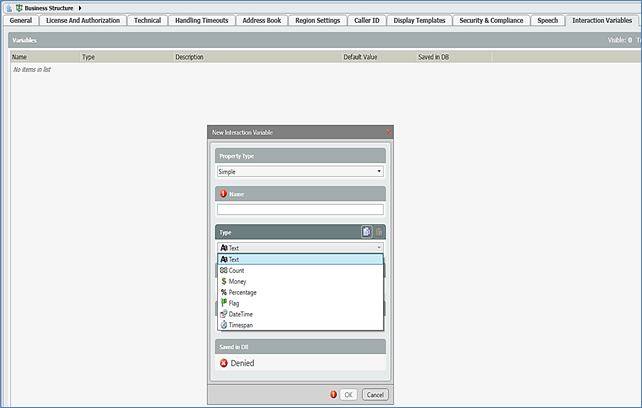General
Interaction Variables allow organization admins to store information for use in routing decisions and reporting. They are similar to Flow Variables, except that Flow Variables are more temporary in nature.
There are three main differences between flow and interaction variables:
- Scope – Interaction Variables remain consistent and referenceable when routing across different Channels and Business Processes.
- Save to Database – Interaction Variables can be saved to the reporting database to provide unique information to organization administrators and supervisors.
- Capability to be used in REST API – Provides a wider capability to create unique variables to both stores and send information via REST API.
Interaction Variable Definition
Interaction Variables can be created or modified within Business Structure > Interaction Variables
Each Interaction Variable can be set up as either Simple or Value Set. In addition, each Interaction Variable can be defined with a default value as well as set to save to the reporting database.
When set to Simple, which is the most common use case within ECS, an Interaction Variable Type can be defined as:
- Text
- Count
- Money
- Percentage
- Flag (Boolean)
- DateTime
- Timespan
Each type defines what type of information can be stored within the Interaction Variable.
Interaction Variables in Reports
Interaction Variables are available in the following Reports:
- 01 Detailed Agent Interactions
- 04 Interactions Detail Record
- 01 Detailed Business Entity
- 4.02 Destination Trace
